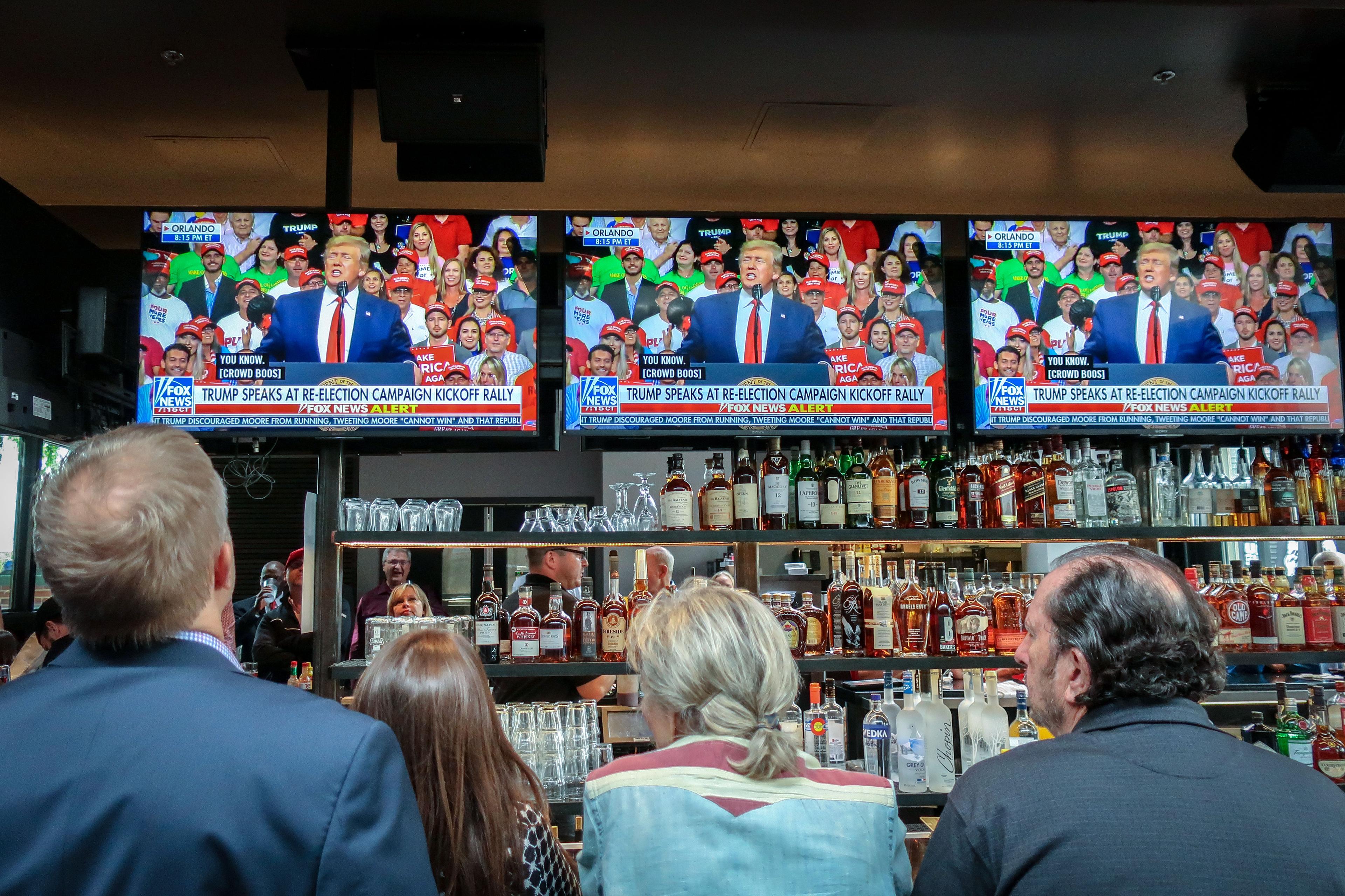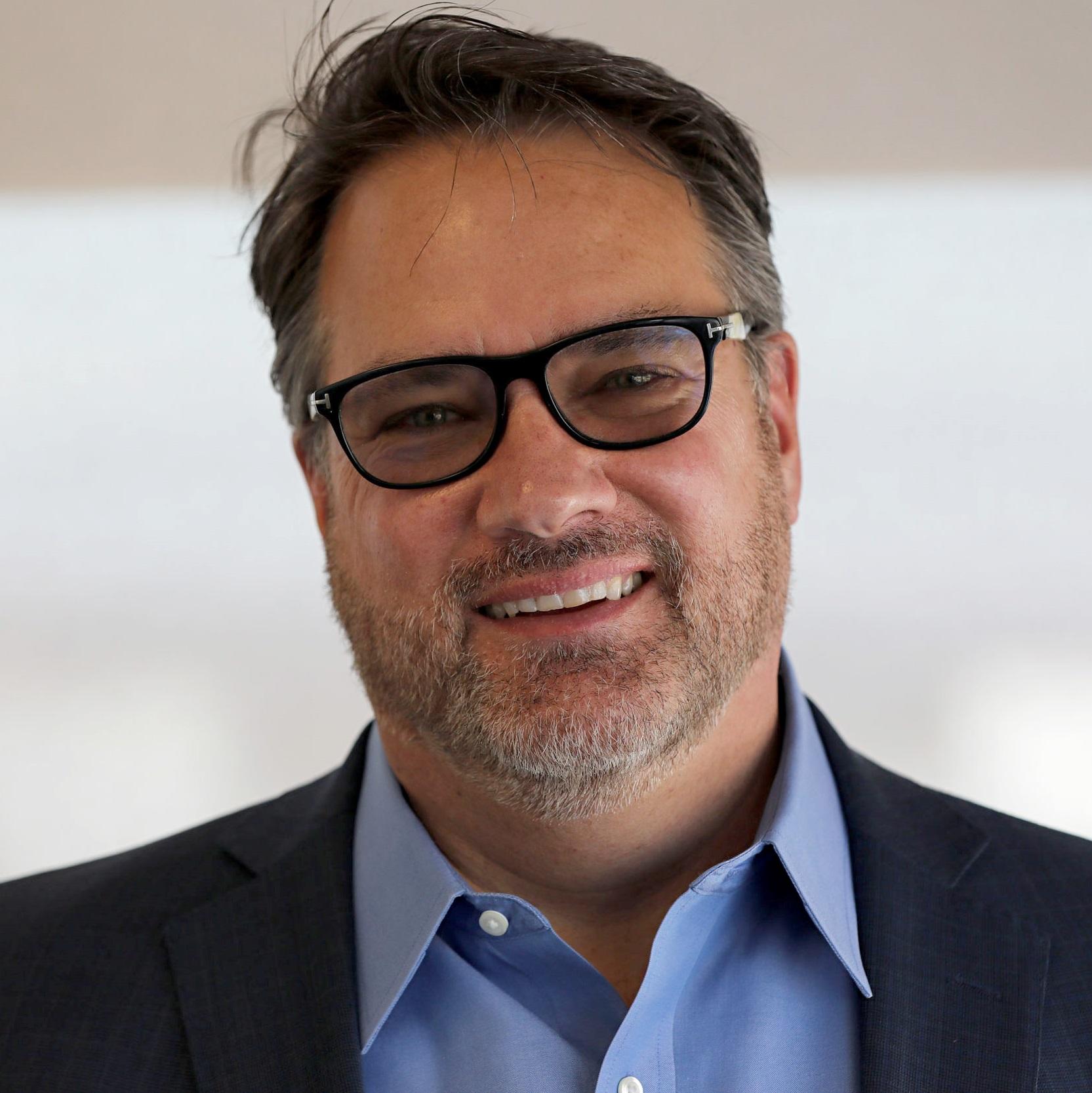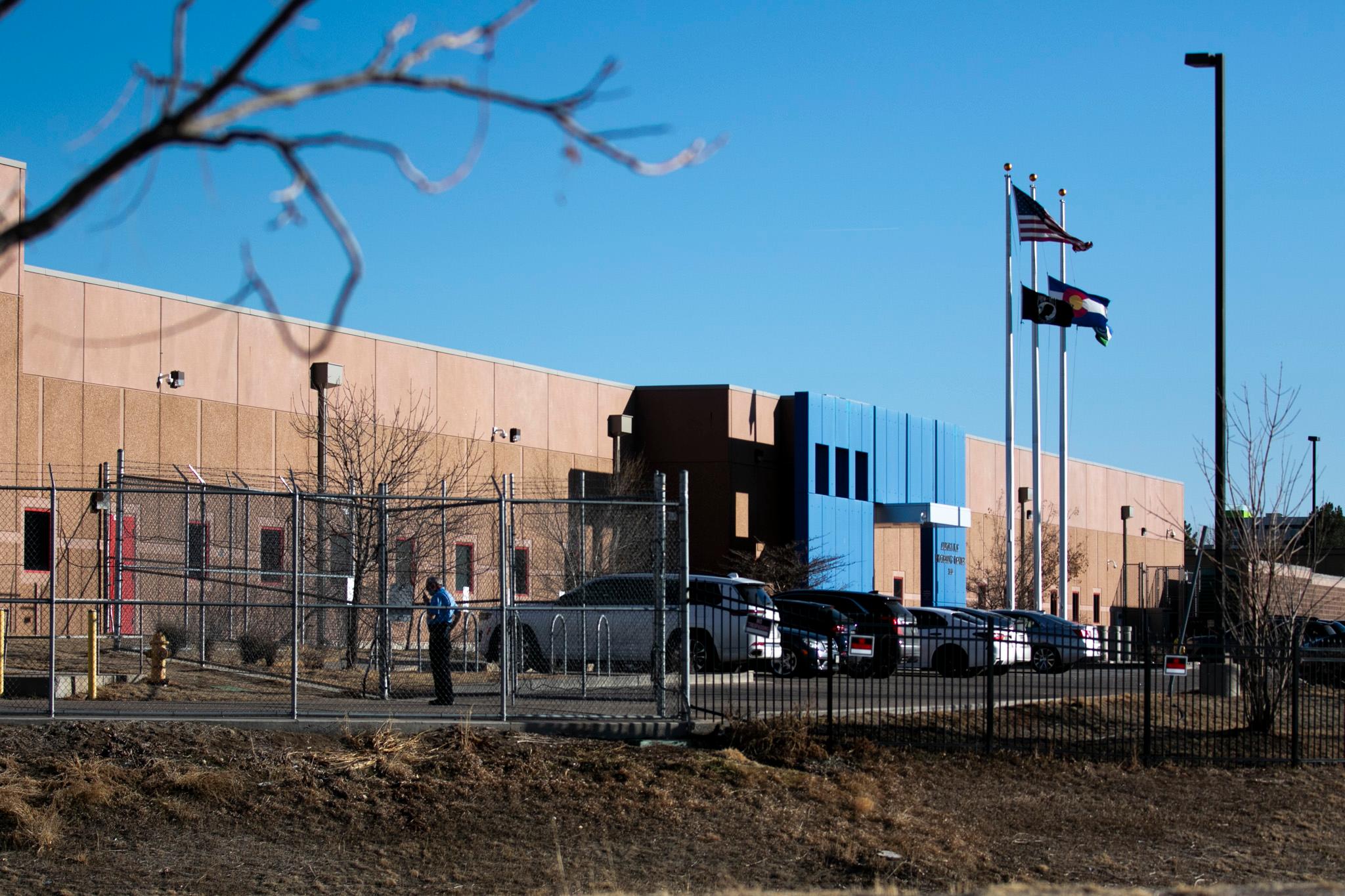
Pssst! Here's CPR News' Voter's Guide to the 2020 Election.
Here’s some good news: Most Americans believe the news media is really important to a democracy. The portion of people who say it’s “critical” has even gone up in recent years.
But at the same time, when then asked about specific national news outlets, surveys show Americans have become more polarized in how much they trust — and use — them.
At CPR News, our mission is to serve all Coloradans, not a partisan sliver. As the election approaches, we wanted to explain more thoroughly what we’re doing to earn your trust every day.
- What's our coverage mission for the 2020 Election?
- How are we planning to cover the entire state? How do you choose which regions to focus on?
- How do we select sources for stories? What about anonymous sources?
- How do we make editorial decisions around candidate coverage and interviews?
- How do we make editorial decisions about what stories to write, or what to cover?
- When covering different parties, how do you make sure coverage is equal? What about minor parties?
- How do you fact check stories or things politicians say?
- Take our survey.
Do you have a question we haven't answered? Let us know.
What is your coverage mission during the 2020 election?
In just a couple months, you’ll sit down with your ballot, and see a long list of names and questions about everything from taxation to wildlife. Amidst everything else happening this year — a deadly virus, remote schooling, a reckoning on racism, historic wildfires, unprecedented unemployment, daily life disruption — it would be understandable if you don’t fully know the details of how those names and those questions on your ballot would change life for you and your community.
That’s where CPR News comes in. Our role is to inform your civic participation. We want to help you understand how the people running for office, if they win, will address — or won’t address — the things that matter to you. And because Colorado is a direct democracy state, we also want to help you figure out what your votes on ballot measures will mean.
In 2020, CPR News has made it our mission to put you at the center of this election. Political reporting could easily put the politicians at the forefront, focusing on things the campaigns want the public to judge them on. Instead, we are seeking out your voices, to hear what you think is most important, what you want to see the politicians address, and to understand the circumstances in your life that drive your participation in this democracy.
By working with you, we can target our questions to the candidates in a way that will be most useful to you as you make decisions with your ballot in hand. We know that every Coloradan can’t ask the candidates questions directly. So our job is to ask those questions that are most important to the people who live here, and to hold the candidates accountable for their answers and for their past words and actions.
How are you planning to cover the entire state? How do you choose regions to focus on?
At the beginning of 2020, when it was not yet clear that the coronavirus outbreak in China would lead to a global pandemic, CPR News sent reporters to sixteen cities across the state. It was the most direct way possible for us to hear from you about what matters to you. Through in-person events and an online survey, more than 1,000 Coloradans told us about themselves and their political choices. That informed two series of stories ahead of the Super Tuesday presidential primaries, and another series of stories before Colorado’s June primary.
Unfortunately, the pandemic has since limited the chances of us setting up shop at cafes and libraries around the state this fall. Instead, we’re redoubling our commitment to the online survey, and we are distributing it intentionally to individuals and groups around the state, particularly to ones whose voices are not always reflected in our coverage, or who don’t see themselves in our coverage.
The goal is for the coverage to be grounded in the realities of life across the many parts of Colorado, from people in different financial situations and professions, people with a variety of ethnic and racial identities, people of all different ages and experiences, and of course people with a wide variety of political ideologies. To do that, we’re prioritizing forming connections with trusted people and active groups in various communities, to better understand the issues, people in power and forces at play. Share our short survey with people in your life, so you can get stories this election season that are most meaningful to you. (You can also take the survey yourself at the bottom of this story by clicking here.)
In addition, this fall we are focused on some of the regions that have the biggest chance of determining this election and regions that reveal something significant about the political future of the state. Those include Pueblo, suburban Denver, Weld and Garfield counties. We’ll be on the ground in all of those places and more, hearing from you about how this unprecedented year translates to your participation in the 2020 election.
How do we select sources for stories? What about anonymous sources?
Our reporters are always expanding their source databases. We look for sources who are experts when the story calls for that. We look for sources across a wide range of attributes — race, ethnicity, geography, ideology, gender, age, religion and many other demographics. The most important consideration for a source, though, is their importance to explaining an issue, their veracity and how they help us achieve our goal of factual, fair reporting.
We use anonymous sources in rare instances. When we do, we put them through a rigorous check, to corroborate what they say; examine evidence they have; get the information without an anonymous source whenever possible; find other sources to corroborate what they say; read emails or documents that support their story. We know that our readers and listeners are more distrustful of anonymous sources so every one must be approved by a top editor.
How do we make editorial decisions around candidate coverage and interviews?
Candidate interviews on Colorado Matters are a big and important investment for our staff. Arrangements are often made with campaigns months in advance to ensure you hear candidates for a particular office in close succession. These segments are thoroughly researched and questions are tightly scripted beforehand. The interviews are fact-checked prior to broadcast.
Traditionally, CPR News has focused our resources on interviewing the major party candidates for the biggest races. We are a statewide news service, and so we aim to produce content that will be of interest to geographically diverse readers and listeners. That’s why you’re much more likely to hear long interviews with candidates for statewide office (U.S. Senate, Governor) than with candidates running for more local offices. That said, we invite candidates for U.S. Congress to be interviewed when the races are tight, since those races help swing control of Congress on a national level and when there is tension over which candidates (and which platform) will sway the most voters. We also interview minor-party candidates when they or their parties show significant momentum to warrant deeper coverage.
We bring a similar bar to state legislative and other local candidate coverage; while those races only directly relate to a small number of voters, we cover them when they help illustrate a bigger story about politics and life in Colorado, or when they could have a significant impact on the balance of power in the state.
How do we make editorial decisions about what stories to write, or what to cover?
Let’s start with the hard truth: There are way more stories out there than our newsroom can cover. And even ones that deserve news coverage from someone don’t always get it from us. So to winnow down what we do cover, reporters and editors have to interrogate every possible story.
The questions we ask include: Does this affect actual people who live in our state? How, and how many? Does this help Coloradans understand each other? Does it help them understand the issues they will have to decide on? Is this information our readers and listeners are seeking at this moment? Is this topic already thoroughly covered in other outlets or will we bring something new with our story? We also as a newsroom set long-term priorities in all of our coverage, including elections, which help keep us focused on diving deep in some areas, and saying no to others.
When covering different parties, how do we make sure coverage is equal? What about minor parties?
As much as possible, we try to achieve balance in the shortest timespan possible. Ideally, you hear candidate 1 on day 1 and candidate 2 on day 2. (Sometimes a coin toss determines the order; sometimes it’s the whims of schedules.) When that’s not possible, it is made clear on-air and on-line that an offer has been made to the other campaign and when that candidate is able to appear, we point to the previous interviews.
As for minor parties, Colorado Matters made the decision in 2020 to interview the Libertarian candidate for US Senate. That party is, by far, the largest minor party in the state and began in Colorado.
In an election year when CPR News is putting voters — not candidates — at the center of our coverage, it’s critical that reporters and editors hear from people across the ideological spectrum. Our outreach is designed to do that. Our interest is in getting the most representative sample we can of Coloradans to talk about what matters to them this year.
Broadly speaking, we don’t have a running count to make sure we broadcast X number of Republicans and Democrats. But with each and every story, reporters and editors ask each other: Have we presented this issue fairly? If we find we have missed a perspective that deepens your understanding or presents a different way to look at an issue, we find a way to get it before you read or hear the story. That said, we are human, and when our readers and listeners draw our attention to something we overlooked, that sometimes leads to further coverage of an issue.
How do we fact check stories or things politicians say?
In all of our coverage on the radio and online, we scrutinize statements from politicians in order to put them in context or edit out factual errors when necessary. Editors, reporters and producers are all tasked with this work, and the editors are the last line of defense on a daily basis. Newsroom leadership also weighs in on particularly complicated situations to guide how we execute our goals to present the truth in context. Sometimes it’s necessary to tell you about something a politician says that isn’t factual, but we don’t want to let that information go out in a story without explaining that it isn’t factual, and the context in which it was said.
So how do we do that? Reporters double-check their facts before handing in a story. They look at the big ideas in the story and also the small things like spellings of names. Editors provide the next check, asking reporters and producers, “How do you know that?” “Are you sure that’s right?” etc. before approving a story for publication or air. Of course, as human beings, we occasionally make factual mistakes, which we prioritize fixing immediately, and explain in editors’ notes on stories so you know what we got wrong. But we hate making mistakes and we strive to never commit them, because we know each one puts your trust in jeopardy.
Specifically on Colorado Matters, once the show records an interview with a candidate, we track each claim made and ask a producer to verify it. If it cannot be verified, we ask the campaign for source material.
False claims may be edited out of interviews or aired with corrections or clarifications. If a candidate or ballot measure segment airs live, a producer is on standby to fact check in real-time, and inform the host that a correction or clarification is necessary. We also do exhaustive preparations so that we know the candidates’ backgrounds and policies well enough that we can push back on mischaracterizations.
If a live fact-check isn’t possible, we do not hesitate to make corrections or clarifications afterward — both on-air and online. Following interviews with candidates or elected officials, we publish online a transcript of the conversation.









